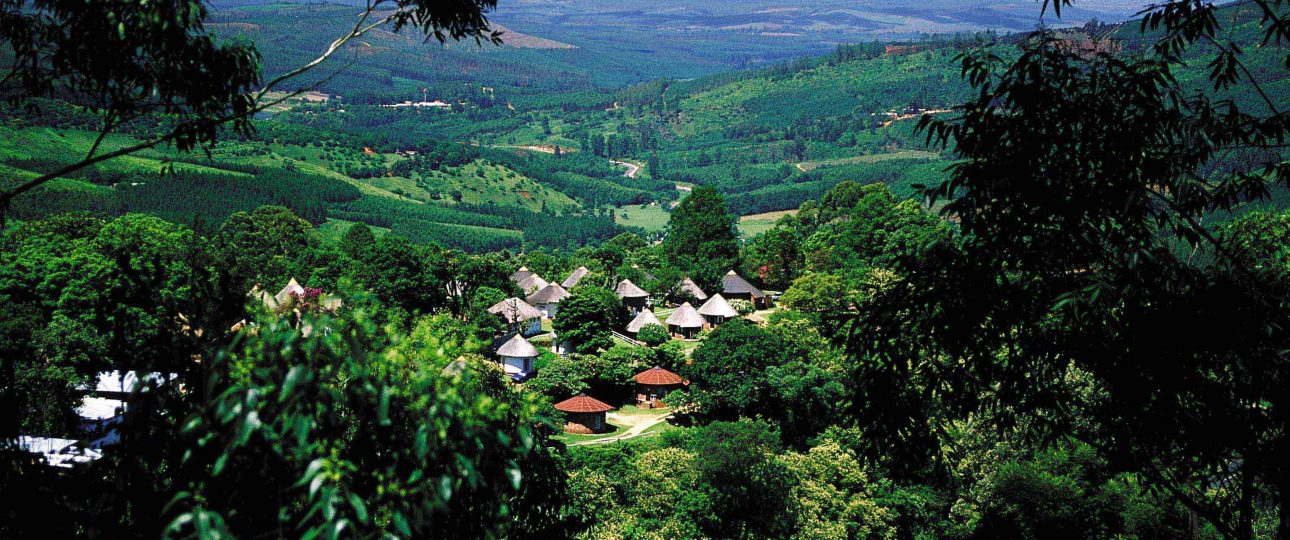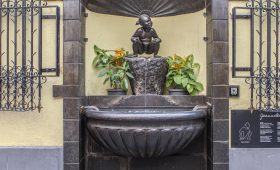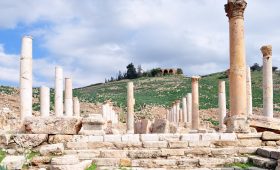Exploring Magoebaskloof
Located in South Africa’s Limpopo Province, Magoebaskloof is a region that captivates with its lush landscapes and rich cultural tapestry. Nestled between Tzaneen and Haenertsburg along the R71, this area is named after Chief Makgoba, with “Magoebaskloof” translating to “Makgoba’s ravine.” The region’s history is as intriguing as its scenery, with the Makgoba people having lived here before the Afrikaners took over the area in the early 20th century.
The Natural Beauty of Magoebaskloof
Magoebaskloof is a haven for nature enthusiasts. Its evergreen subtropical forests are a stark contrast to the surrounding Limpopo bushveld. Known as the “land of the silver mist,” the area is often shrouded in a mystical fog that enhances its natural allure.
Forests and Trails
The forests here are teeming with life, from fungi and ferns to ancient trees. The Woodbush Forest Reserve is a must-visit, especially for bird watchers. It hosts over 200 bird species, including the elusive Cape Parrot. Well-marked trails make it easy to explore, offering a chance to immerse yourself in the forest’s unique ecosystem.
Waterfalls and Streams
Waterfalls are a highlight of Magoebaskloof. Debengeni Falls, with its cascading waters, is perfect for a refreshing swim or a tranquil picnic. The Magoebaskloof Dam and other smaller streams provide picturesque spots for relaxation and reflection.
Local Culture and Community
The cultural landscape of Magoebaskloof is as vibrant as its natural one. The area is home to diverse communities with rich traditions. Engaging with locals offers insights into their customs and way of life.
Village Visits
Visiting local villages provides a glimpse into the region’s cultural heritage. Interact with residents, observe traditional dances, and enjoy music performances. These experiences offer a deeper understanding of the traditions passed down through generations.
Culinary Delights
Food is an integral part of the Magoebaskloof experience. The region offers a variety of traditional dishes, from hearty stews to game meat. Adventurous eaters might even try Mopane worms, a local delicacy. Don’t miss out on the fresh produce, including raspberries, blueberries, and avocados, thanks to the area’s unique climate.
Where to Stay
The Magoebaskloof Hotel, established in 1937, remains a popular choice for visitors. It offers both standard and self-catering rooms, providing a comfortable base for exploring the area. For more information, visit their website.
Best Time to Visit
The ideal time to visit Magoebaskloof is during the spring and summer months, from September to February, when the weather is pleasant and the flora is vibrant. For those who prefer cooler temperatures and fewer crowds, autumn and winter (March to August) are also suitable times to visit.
Getting to Magoebaskloof
By Air
The nearest international gateway is OR Tambo International Airport in Johannesburg. From there, you can rent a car or fly domestically to Polokwane Airport, the closest airport to Magoebaskloof.
By Road
Driving from Johannesburg is straightforward. Take the N1 highway to Polokwane, then follow signs to Magoebaskloof. The journey takes about 4-5 hours, depending on traffic.
Local Transportation
Having a car is recommended for exploring Magoebaskloof, as public transport options are limited. Local taxi services are available, but it’s wise to plan your trips in advance.
Did You Know?
Blueberry Heights in Magoebaskloof is South Africa’s only organic gold kiwi producer, adding a unique touch to the region’s agricultural offerings.




